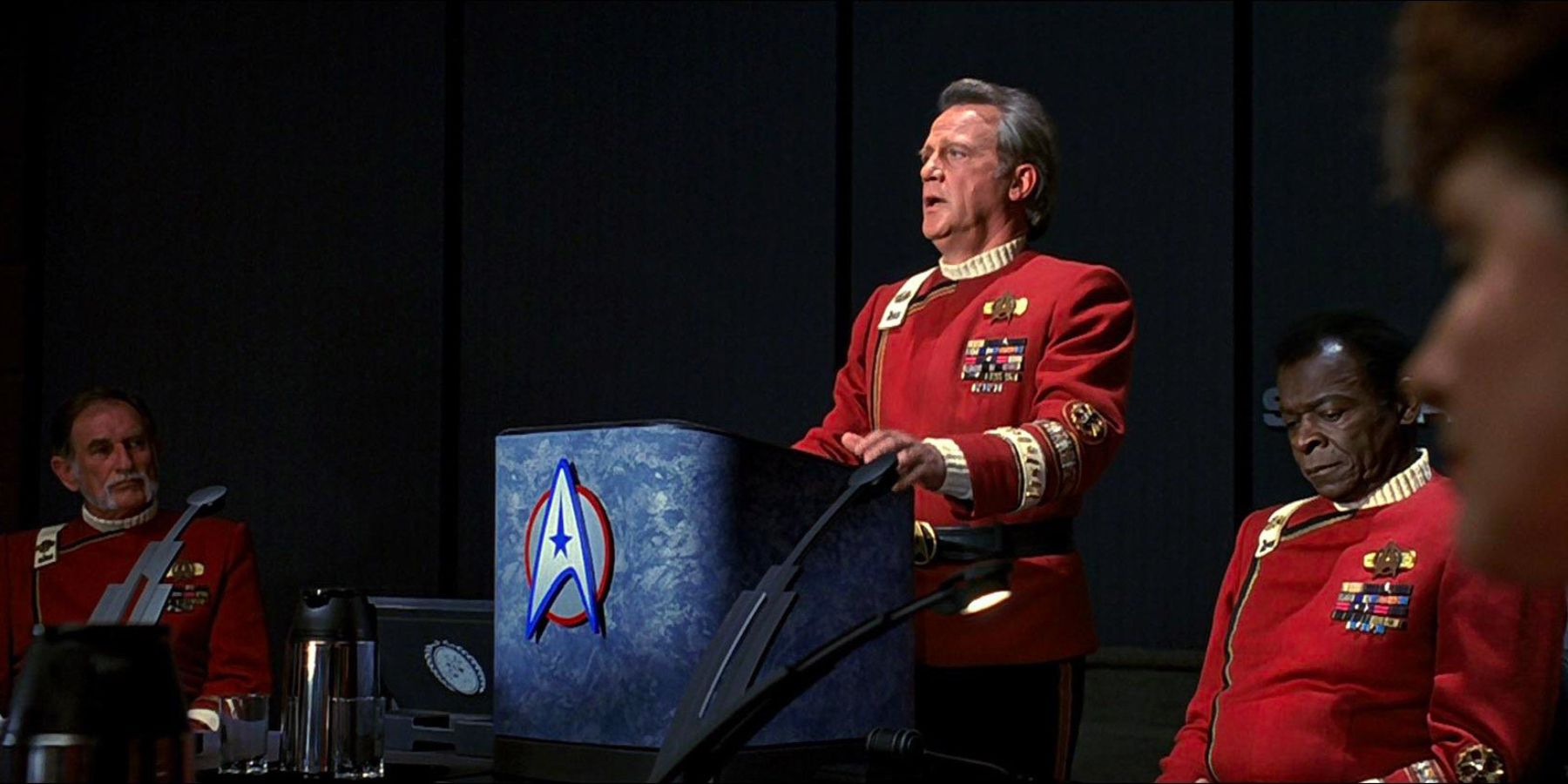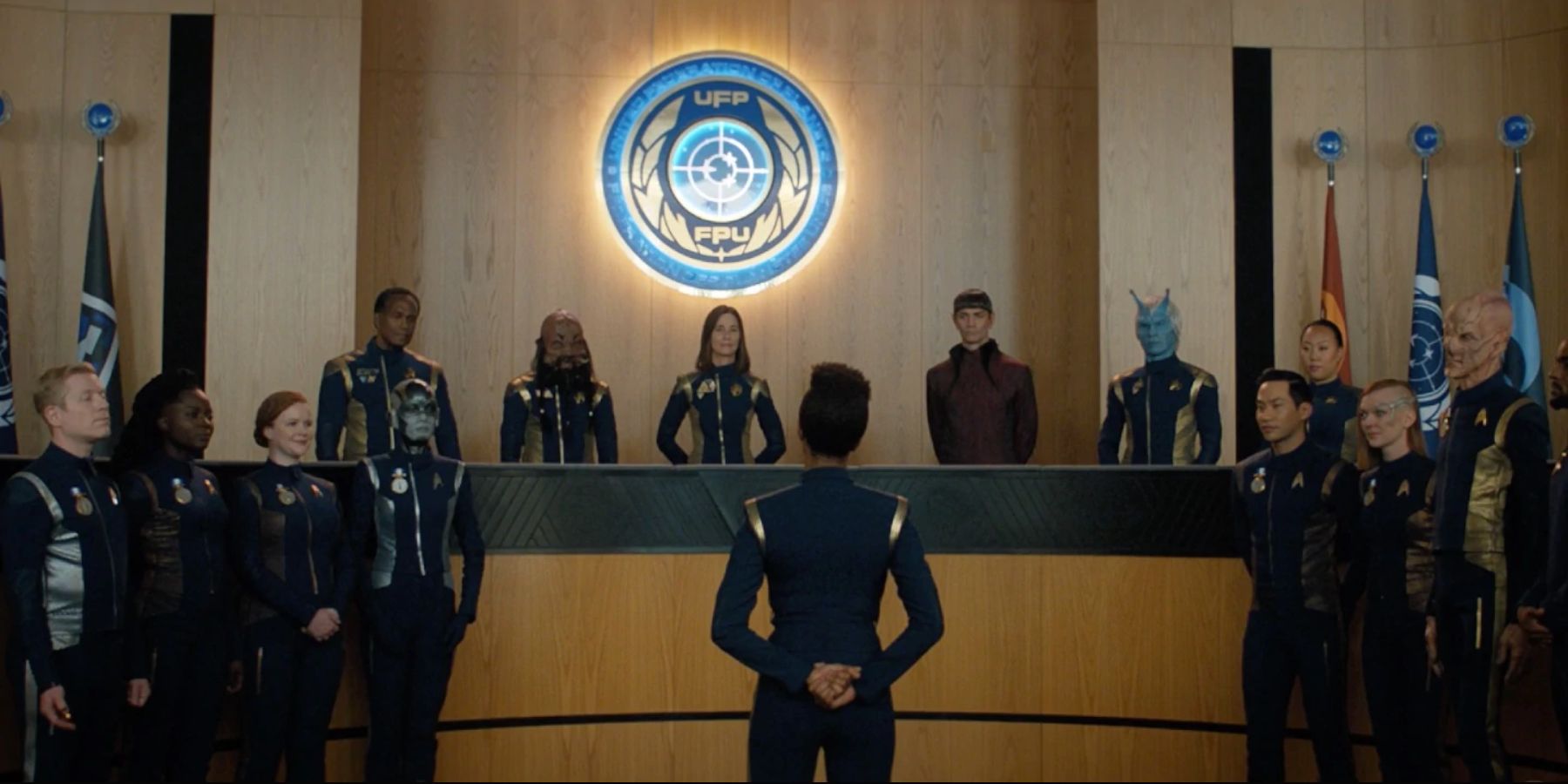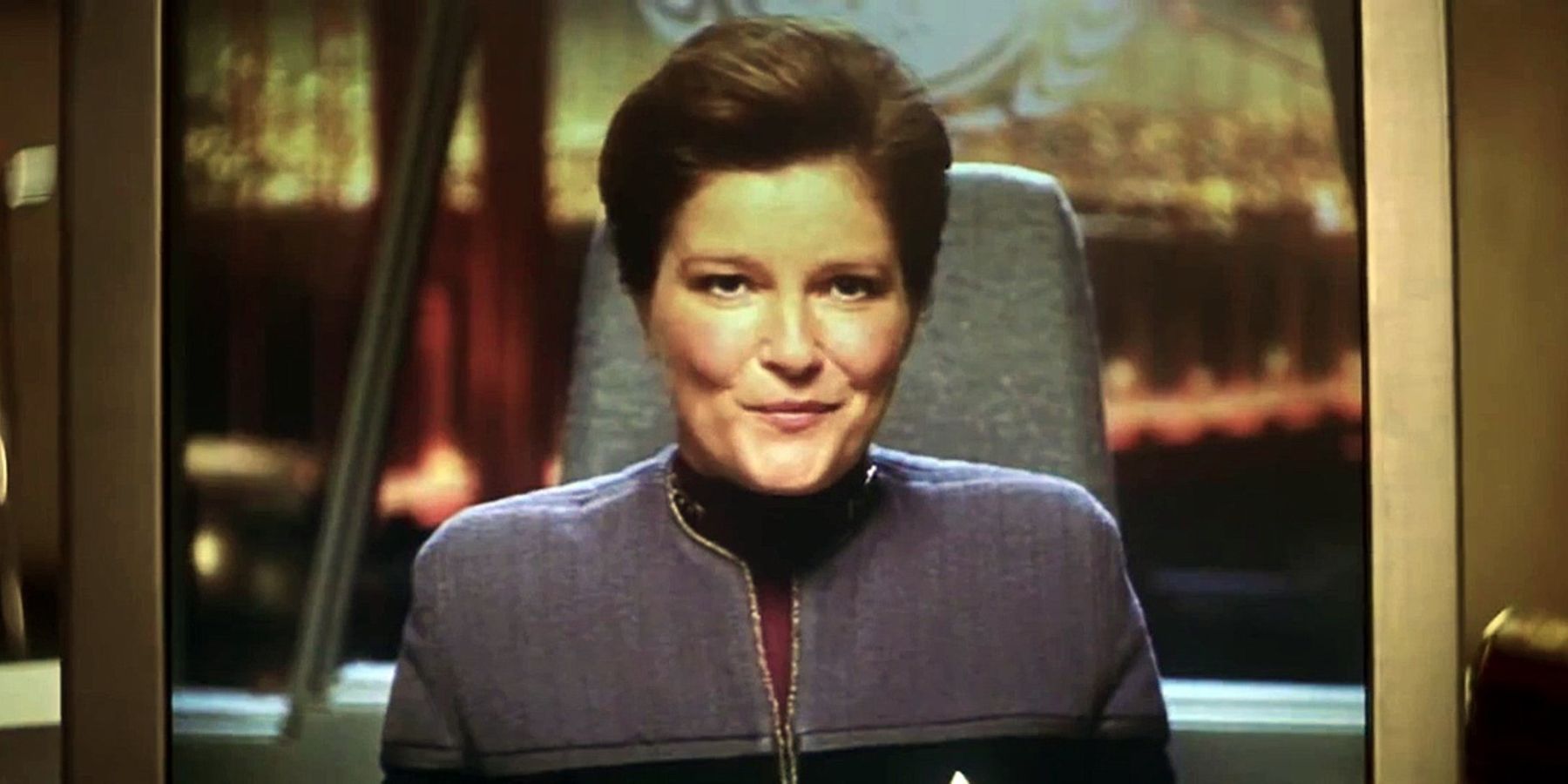The ever-expanding universe found within Star Trek is filled with incredible science fiction technology, and a dynamic range of alien races and cultures. It also features a highly detailed web of bureaucracy. There is the United Federation of Planets, a massive space government. Then, within that is Starfleet, a complex space exploration military (for want of a better word) with various rankings, positions, and hierarchies making up its structure.
While promotion never seems like a bad thing, even within this fictional world, there seems to be a limit to how far Starfleet officers want to climb. Individuals strive day in and day out to become a captain, then desperately fighting against all possibilities of further promotion. Why do Starfleet captains fight so hard to avoid being promoted beyond that rank?
Like many decisions in the franchise that may seem odd, this one has a simple out-of-universe explanation, and a more detailed in-universe one. The real world reason is that if the captain (and often main protagonist) of the show were to be promoted, they would no longer be sitting in the captain's chair. Instead, they'd be on another adventure somewhere else. The Next Generation couldn’t have the intrepid adventures of the iconic USS Enterprise with Admiral Picard thousands of light years away. Writers stretched this as much as they could, even with other characters such as a William Riker never rising through the ranks to become captain during TNG despite his impeccable service record. This did come to a head during Nemesis, where there was a staggering number of captains aboard the Enterprise where in reality they should have been captaining their own ships. Of course, this type of poetic license meant that the main cast got to stick together for one last adventure, so nobody was complaining.
The canon explanation can be found when looking at the motivations of these great captains, and why they got into Starfleet in the first place. These people had a deep desire to explore, and discover new life and new civilizations — to boldly go where no one has gone before. They have worked hard over their careers with the explicit goal of sitting in the captain's chair and commanding an entire ship, pioneering a path through the galaxy with a large amount of freedom. Once they are here, it makes sense they would never want to leave. They wouldn't want to be taken away from what they have strived for.
The title of admiral is nothing to sniff at, as the amount of power that comes with the rank surely appeals to some. However, the reality of the job is that of a glorified pencil pusher. Admirals have to deal with the bureaucracy and mind-numbing politics of the Federation. They must often look at the big picture rather than focusing on the ‘smaller’ issues. Admirals are often the type of people who are forced, for example, to stop a Starfleet captain from saving a stranded ship, as by doing so would provoke war. It may be a logical decision, but is far removed from the nitty-gritty morality of these common situations.
The other, potentially less humble, view is that when a captain sits in their chair aboard their bridge on their ship, they are in control. They have the power to command and the authority to make life and death decisions, and they are (mostly) good at it. When traveling in undiscovered areas of space, far away from the bureaucracy of the Federation, a captain's word is often law. They have to make decisions that often go against rules and regulations, but they do and are often praised for it because it was the right thing to do. An example of this are the captains who break the Prime Directive in order to save a culture, technically disobeying the Federation's most sacred rule, but at the same time valuing life over politics. Being in the chair, however, is not just a captain's excuse to escape Starfleet. Instead, it is their chance to become the face of it, representing them as they journey on into the unknown.
There are, of course, admirals that have risen through the ranks by avoiding becoming ship captains. These are the ones that have strived for the admiral position since joining Starfleet. They never wanted to explore the galaxy; rather, they wanted to be involved in politics. They still have to have been a captain at some point, never able to skip this step out. But instead of commanding an exploration vessel like the Enterprise, they were in charge of shipyards or space stations like the morally ambiguous Sisko, promoted to admiral due to the performance rather than heroic acts in the line of duty. They are the ones with great managerial skills, often with little experience of the real world. This results in them often clashing with captains who are experiencing things from the front line.
Captains like Picard and Kirk often refuse promotions constantly, holding off for as long as possible. They see the role of admiral as a form of semi-retirement, something to do when they feel too old to captain. The most notable exception is that of Janeway from the underappreciated Voyager series Upon her return to Earth, she was promoted to Admiral and took the position gladly. This was most likely due to her having seen enough of the galaxy, and wanting to never leave Earth again.






